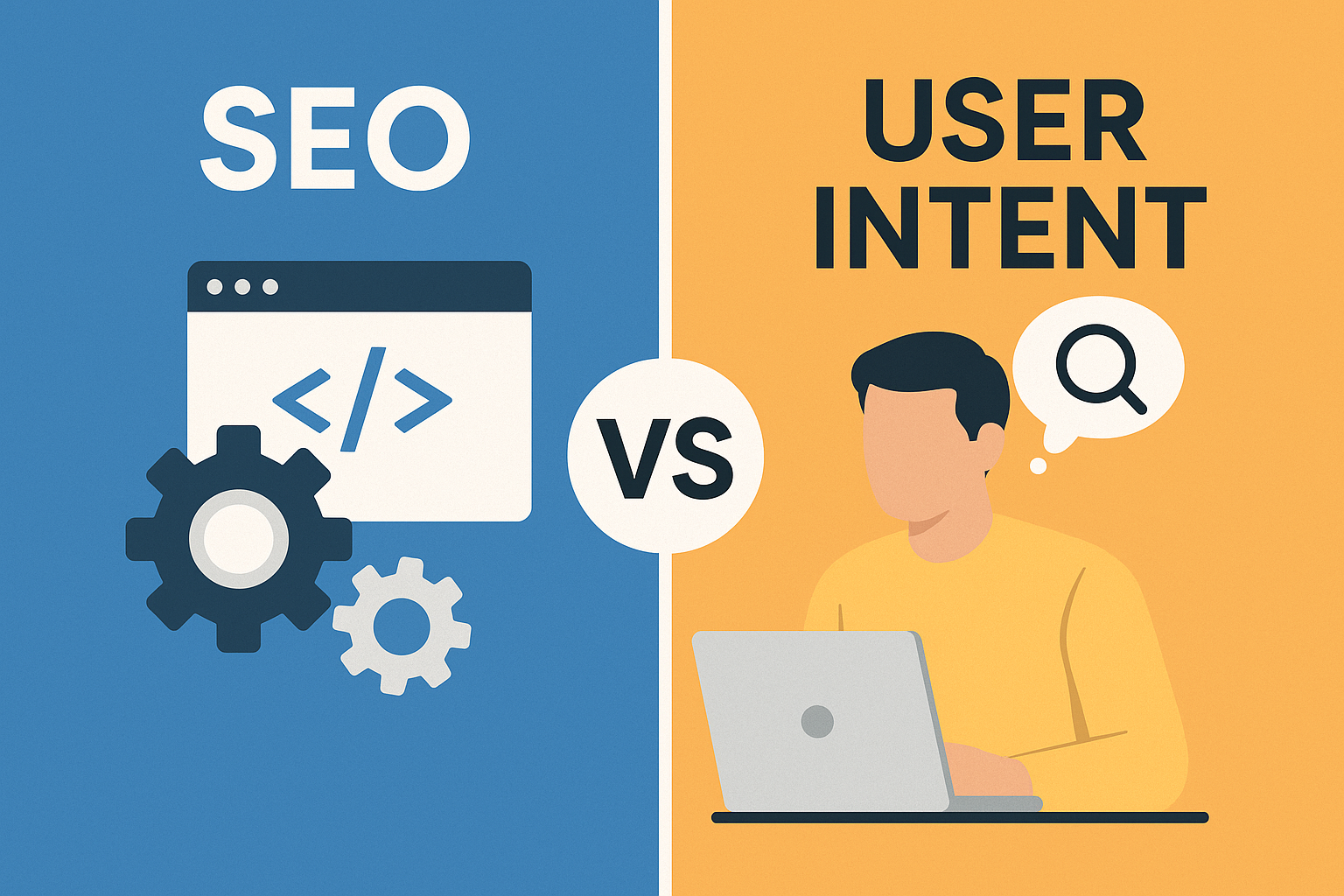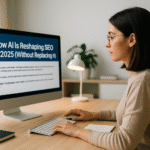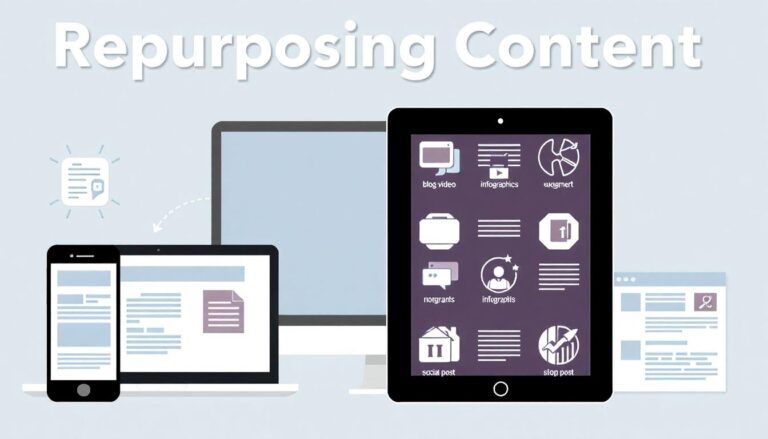User Intent & Keyword Relevance for SEO: The Key to Attracting the Right Audience
Understanding what your users want is at the heart of good SEO. If your site answers real needs, you’ll get more than rankings; you’ll get engagement and conversions. It’s not about cramming your pages with popular keywords. It’s about matching the right words to the right reasons behind every search. This guide shows how you can use user intent to set up your website for fundamental SEO wins.
What Is User Intent?
User intent describes why someone types a specific search into Google. Are they looking for information? A place to visit? Something to buy? Pinpointing this intent helps you serve up content, offers, or advice that matches what users want.
Let’s look at a simple example. If someone searches “Japanese restaurant Sydney,” they’re likely hungry and want somewhere to eat in Sydney. But if they just search “sushi,” their reasons get murky. Are they seeking recipes? The history of sushi? A place to dine? A good SEO strategy spots this difference. Don’t chase broad, high-traffic keywords unless they match what your best customers search for.
If you fill your restaurant website with “sushi” just because the keyword is popular, you may attract students writing reports or hobbyists, not hungry diners. That’s why intent often beats volume for business results.
Types of User Intent: Informational, Navigational, Transactional
Searches fall into three main buckets. Let’s break them down:
Informational Intent
These users want answers, not products. They type questions like “how does solar power work?” or “government regulations for new homes.” If you’re a home builder, providing guides or tips helps capture this traffic and builds trust. Sharing answers grows your authority and, in time, your audience.
If you’re focused on growing trust as a content creator, check out these proven strategies to boost trust and credibility. Building trust leads to more loyal readers and better engagement.
Navigational Intent
Here, the goal is to reach a specific site or brand. For example, if someone types “Periscope Media,” they want to land directly on that company’s site, not read a review or learn industry facts. If your brand is what they seek, make sure it stands out. Keep your name visible and your site easy to navigate.
Transactional Intent
These are the individuals who are ready to take action. Think of someone who searches “emergency locksmith.” They’re locked out, desperate, and want to call for help now. Transactional intent often means money changes hands. Service pages, booking links, and clear calls to action connect you with buyers, not just browsers.
Each type of intent requires a different approach. Targeting them with the right content ensures visitors find what they want, and you get better results.
Aligning Content With User Intent for SEO Success
Matching your content to user intent isn’t just best practice. It’s essential for turning visitors into fans and customers.
Start with your site’s structure. Group pages by intent, guides and FAQs for information seekers, clear landing pages for buyers, and branded “about” or homepage sections for those searching your name. Use headers and page titles that echo the words your audience types in.
For example, a local plumber should create specific landing pages for “emergency plumber in [City]” to match transactional intent. At the same time, blog posts like “how to prevent frozen pipes” catch informational searches. This layered approach improves both user satisfaction and SEO.
To keep your content fresh and functional, regularly review your site for gaps. Learn more about identifying and fixing content gaps in blogs. A well-rounded site covers every phase of the user journey.
Selecting the Right Keywords by Understanding Intent
Keyword tools help you spot popular search terms, but they can’t tell you exactly why someone searches a word. Always review keywords with intent in mind.
🔍 How to Pick Keywords That Pay Off
- List key topics your ideal users care about.
- Check real search results for each keyword.
- Do you see how-to guides, store listings, or homepages?
- Match your content to what’s ranking for that intent.
- Avoid stuffing popular keywords just for traffic.
- More clicks mean nothing if visitors bounce right away.
Look for terms that line up with your services or knowledge. Focus first on what your customers need. For more ideas, explore tips on how to get people to visit your website. The right content, matched to intent, brings in exemplary visitors.
FAQ: User Intent & Keyword Relevance in SEO
What is user intent in SEO?
User intent refers to the specific goal a person has when they search online. It can be used to find information, make a purchase, or access a particular website. Understanding user intent helps you pick keywords that match what people are looking for.
Why does keyword relevance matter?
Keyword relevance means your keywords match the topics people care about. If your keywords don’t fit user needs, your page won’t rank well, and visitors may leave quickly. Always select keywords that reflect the primary focus of your content.
How can I identify user intent for a keyword?
Look at the top search results for your target keyword. Are most pages informational, shopping, or navigational? This shows what most users expect. Read titles and descriptions to spot patterns.
Can one page target more than one type of user intent?
It’s best to focus each page on a single intent. Mixing intents can confuse both users and search engines. Keep your content focused for better results.
Does matching user intent improve SEO rankings?
Yes. When your content matches search intent, users stay longer and interact more. Search engines reward this by ranking your page higher.
How do I keep up with changing user intent?
Review your top keywords often. Monitor search trends and update your content as needs change. Stay flexible to meet users’ current needs.
What tools help analyze keyword relevance?
Use keyword research tools to find related terms, search volume, and competition. Check how competitors use keywords and see what ranks well. Google’s “People also ask” feature can display related questions.
How specific should my keywords be?
Use keywords that fit your topic and audience. Long-tail keywords (three or more words) target a clear intent and face less competition. These often bring higher-quality traffic.
How does the search engine’s understanding of user intent affect my strategy?
Search engines try to show results that best match what users want. They look at the words, context, and even past searches. Ensure your content is clear and addresses the expected question or need.
Is it enough to only focus on keywords?
No. Keywords help, but your content must also be helpful and answer the user’s question. Good structure and user experience matter just as much.
Final Thoughts
User intent drives every search. If your site answers user needs, you’ll see more than rankings; you’ll gain trust, engagement, and conversions. Don’t chase traffic for its own sake. Focus on being helpful and relevant. Review your content regularly, tailor it to match real search intent, and keep learning as trends shift. This mindset will keep your SEO future-proof and your site valuable to every visitor.

Hello, I’m Michael, the founder of apexaffiliate.com. A few years ago, I was searching for a way to make money online and break free from the daily grind of the 9-5 lifestyle. Like many, I encountered countless “Done for you” and “Get Rich Quick” schemes, but eventually, I got lucky and discovered my path to success.
That turning point was Wealthy Affiliate, a platform I now consider home and the cornerstone of my online achievements. I want to share this journey with you and provide helpful insights into the basics of affiliate marketing, with the goal of making your path smoother than mine.
Join me, and let’s navigate this journey together—I’ll be here every step of the way to guide you.













